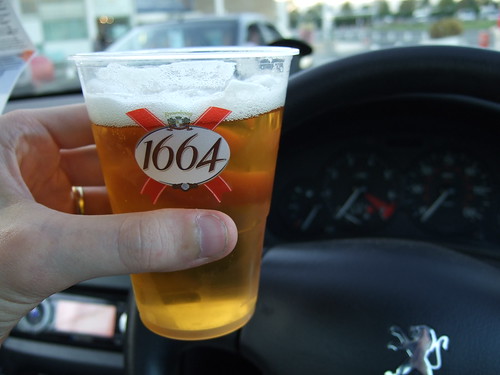A recent drunk driving arrest caught my eye as a Massachusetts OUI criminal defense attorney because of the length of the driver’s previous record. As the Boston Globe reported Dec. 7, 52-year-old Vernon Perry of East Providence, RI, is facing his ninth charge of operating a vehicle under the influence of alcohol. Perry was arrested in Seekonk in the early hours of Dec. 4 after police spotted him speeding and driving erratically. He failed field sobriety tests but refused to take a breath test, triggering an automatic suspension of his driver’s license. After he appeared in court and pleaded not guilty Dec. 6, the judge ordered him held for a dangerousness hearing, which means he can be held for up to 90 days. If convicted, he faces 2.5 to 5 years in prison, plus lifetime revocation of his driver’s license.
Despite his long record of driving drunk, Perry had a valid driver’s license when he was pulled over by Seekonk police. His eight previous OUI convictions date from 1983 to 2001. That means all of the convictions took place before Melanie’s Law, which tightened penalties for drunk driving, passed in 2005. Before Melanie’s Law, courts could not consider drunk driving convictions more than 10 years old, and drivers lose their licenses for life on a fifth OUI offense. However, that wasn’t the case in 2001, when Parry reportedly received two OUI convictions. As a result, his license was suspended for just four years.
However, a spokesperson for the RMV noted that Melanie’s Law has helped to keep Parry off the road since 2005. Because he was not eligible for license reinstatement until 2006, the spokesperson noted, the requirements of Melanie’s Law applied when he did get his license back. That law required him to drive with an ignition interlock device, at his own expense, for two years. That ended in 2008, and the RMV reportedly took the step of notifying the police in his former town, Winthrop, about his record. In the current case, Melanie’s Law will certainly apply, which means Parry is facing a mandatory two to five years in prison, plus lifetime loss of his driver’s license. He also faces a dangerousness hearing, which means he could be held without bail until trial if the court decides he is a danger to the public.
As a Massachusetts drunk driving criminal defense lawyer, I appreciate that the Globe showed that current Massachusetts OUI law does not need to be strengthened. In fact, many criminal defense attorneys felt that Melanie’s Law was too harsh in some ways. Clearly, a “lifetime lookback” for past convictions is appropriate for someone like Perry. But for people who made one isolated mistake as young adults, the “lifetime lookback” means that mistake could haunt them forever. For a second conviction, even decades later, that person could face a mandatory 30 days in jail, a two-year license suspension and a mandatory ignition interlock device after the license is reinstated. That’s a lot of penalties for two offenses at opposite ends of a person’s adult life. And as I wrote recently, the Massachusetts legislature is considering requiring the devices after one OUI, making it clear that authorities are not eager to let drunk drivers off the hook.
Most drivers I represent don’t have anything like the lengthy record Parry has. But as a Massachusetts OUI criminal defense attorney, I recommend that drivers do everything they can to keep a first OUI off their records — so they don’t end up with a string of convictions with ever-increasing consequences.
 Massachusetts DUI Lawyer Blog
Massachusetts DUI Lawyer Blog


 As a
As a  A man from Charlton was sent to prison Feb. 24 after receiving his seventh conviction for operating under the influence. Jason Wetteland, 40, was arrested most recently on Aug. 1, 2009, after an Amesbury police officer witnessed him nearly causing a crash on Route 110. The officer immediately pulled him over, and Wetteland allegedly admitted he was drunk. He was holding a bottle of blackberry brandy between his legs and had at least eight cans out of a 12-pack of beer in the vehicle. Nonetheless, Wetteland refused to take a blood-alcohol concentration test. He pleaded guilty to a fifth or subsequent OUI; driving after license suspension, subsequent offense; and negligent driving.
A man from Charlton was sent to prison Feb. 24 after receiving his seventh conviction for operating under the influence. Jason Wetteland, 40, was arrested most recently on Aug. 1, 2009, after an Amesbury police officer witnessed him nearly causing a crash on Route 110. The officer immediately pulled him over, and Wetteland allegedly admitted he was drunk. He was holding a bottle of blackberry brandy between his legs and had at least eight cans out of a 12-pack of beer in the vehicle. Nonetheless, Wetteland refused to take a blood-alcohol concentration test. He pleaded guilty to a fifth or subsequent OUI; driving after license suspension, subsequent offense; and negligent driving.